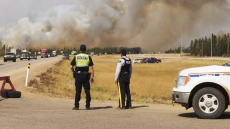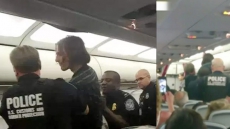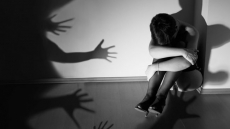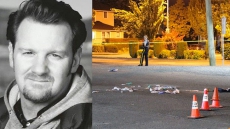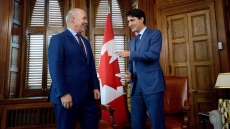Calgary Pride says it's encouraging police officers to take part in its annual parade in September — under some conditions.
The group says police can participate as long as it's without uniforms, firearms, vehicles or institutional representation such as floats.
"We acknowledge the historical oppression and institutionalized racism faced by queer/trans people of colour and Indigenous persons, and the potentially negative association with weapons, uniforms, and other symbols of law enforcement," Calgary Pride said in a news release Wednesday.
"We also recognize the oppression of the gender and sexually diverse community at large, the discrimination faced by members of law enforcement who identify as part of the (gender and sexually diverse) community and the challenges they may have encountered as a self-identified (gender and sexually diverse) community member in the workplace."
Calgary Pride says it also wants top brass at the Calgary Police Service, including Chief Roger Chaffin, to have formal diversity and inclusion training.
As in past years, the group says police will provide security at the Sept. 3 parade, which attracts more than 60,000 spectators.
"We believe banning Calgary Police Services, and other law enforcement agencies from participating in Calgary’s Pride activities deters from engaging in meaningful discussions on how law enforcement agencies can best support Calgary’s gender and sexually diverse community," Calgary Pride's release said.
"We welcome the participation of Calgary Police Services, and other law enforcement agencies in a manner that demonstrates allyship and understanding."

The group said the conditions have been communicated in detail to senior managers at the Calgary Police Service.
Police were expected to comment later Wednesday.
Law enforcement involvement in Pride events has stirred controversy in recent years.
In January, Pride Toronto organizers agreed to a list of demands from the city's chapter of Black Lives Matter. They included a ban on uniformed officers and police floats in the parade.
The issue first came to widespread public attention during last year's parade, when members of the anti-racism group staged a sit-in that halted the march until Pride organizers agreed to a list of conditions.
Black Lives Matter has argued that allowing uniformed officers at the parade could discourage marginalized communities from attending.
